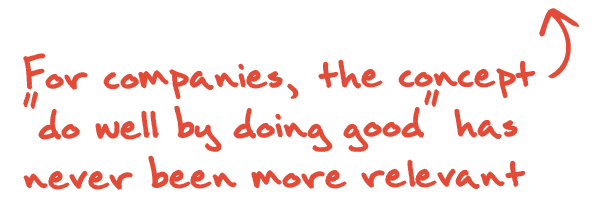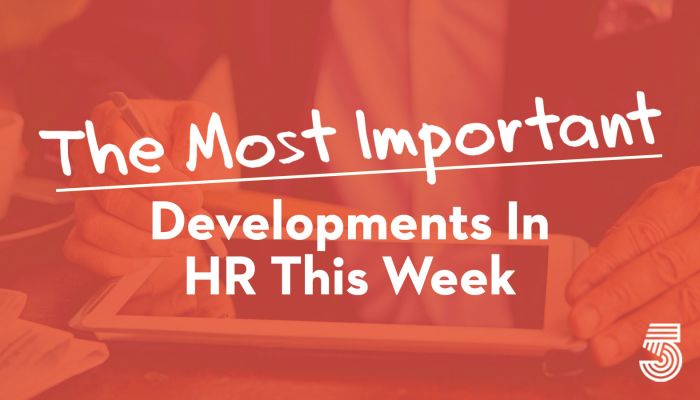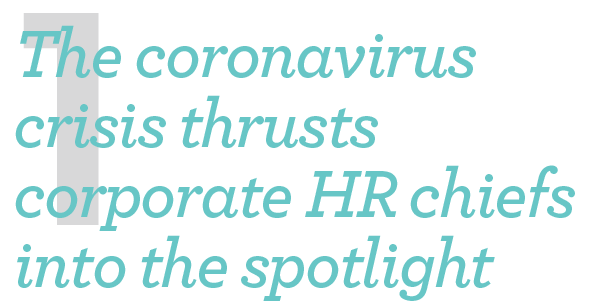
When the financial crisis rocked the business world in 2007-09, boardrooms turned to corporate finance chiefs. A good CFO could save a company; a bad one might bury it. The COVID-19 pandemic presents a different challenge — and highlights the role of another corporate function, often unfairly dismissed as soft. Never before have more firms needed a hard-headed HR boss. The duties of chief people officers, as human-resources heads are sometimes called, look critical right now. They must keep employees healthy; maintain their morale; oversee a vast remote-working experiment; and, as firms retrench, consider whether, when, and how to lay workers off. Their in-trays are bulging. The pandemic makes “people analytics” more relevant. Mala Singh, chief people officer at EA, a maker of video games, represents the C-suite on the team tasked with pandemic response. This now occupies 60-70% of her (long) day. She is digitally monitoring employee sentiment, particularly anxiety. In a creative business like EA’s, “having someone stressed about their family situation does not enable productive work,” she explains. The Economist
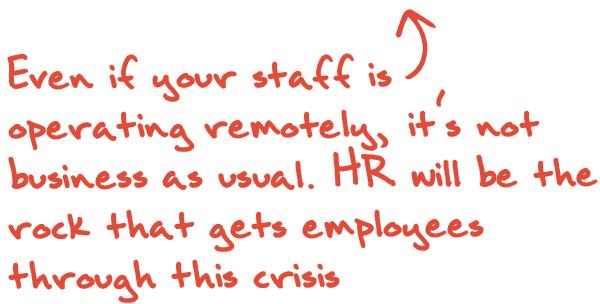
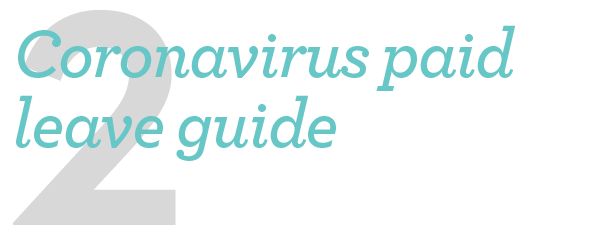
The coronavirus emergency relief package, which became law Wednesday, gives many American workers paid leave if they need to take time off work because of the virus. It is the first time the United States has had widespread federally mandated paid leave, and includes people who don’t typically get such benefits, like part-time and gig economy workers. But the measure excludes at least half of private-sector workers, including those at the country’s largest employers. It gives qualified workers two weeks of paid sick leave if they are ill, quarantined, or seeking diagnosis or preventive care for coronavirus, or if they are caring for sick family members. It gives 12 weeks of paid leave to people caring for children whose schools are closed or whose child care provider is unavailable because of coronavirus. Most workers at small and midsize companies and nonprofits can get the paid leave, as can government employees, as long as they’ve been employed at least 30 days. The New York Times
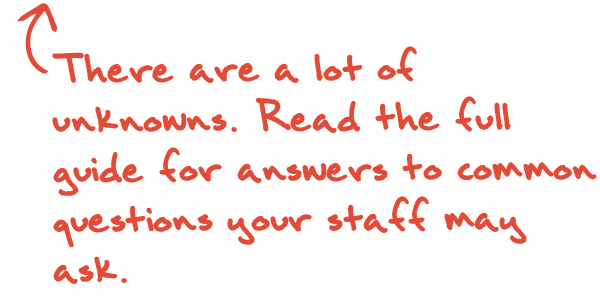
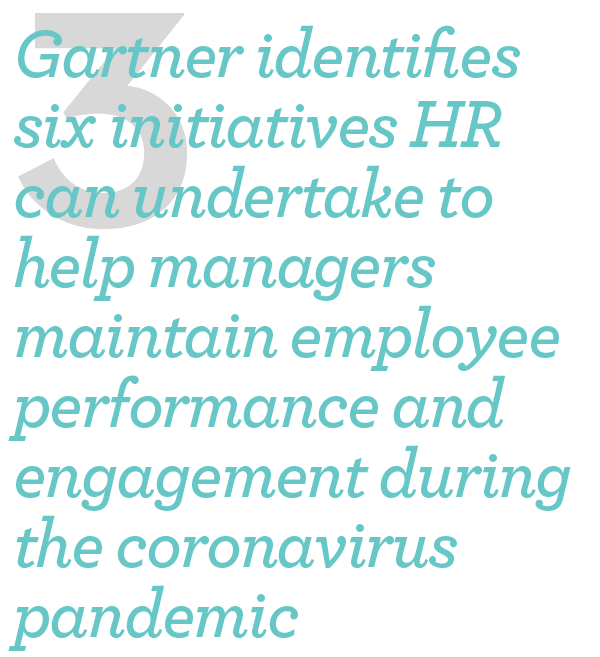
Organizations need to focus on employees’ emotions related to the coronavirus pandemic to restore productivity and deliver on employee experience, according to Gartner, Inc. The significant impact of the COVID-19 outbreak on employees’ personal and work lives is leading to employee anxiety, frustration, and burnout. When left unattended, these feelings can affect employees’ productivity and engagement, leading to poor work quality, errors, and eventually influencing an organization’s ability to survive in these difficult times. “Most organizations have focused on scenario planning and necessary operational responses to ensure business continuity,” said Brian Kropp, chief of research for the Gartner HR practice. “However, these plans often do not address, nor impact, employees’ ability to focus on their work.” HR should help managers at all levels do six specific activities to ensure employees get the requisite support to tackle the emotional response: Sense employees’ need for support. Promote dialogue to build understanding. Use objectives to create clarity. Reinforce organizational values to reduce the likelihood of misconduct. Tailor recognition to acknowledge employee efforts. Drive engagement via innovation. Gartner
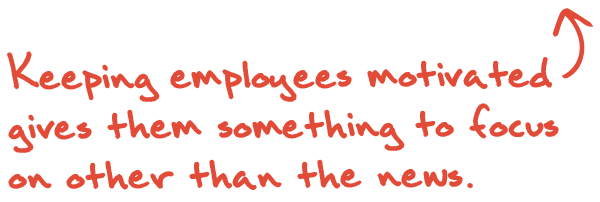
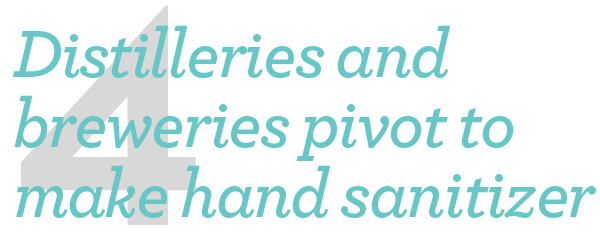
After a weekend barrage of social media posts documenting sanitizer shortages and soap aisle raids across America’s supermarkets, Melissa Hanesworth and Tara Engel felt they had to act. The two women also knew they were in a position to do something: They had jobs in manufacturing and public affairs at the New York-based North American division of Pernod Ricard SA, the $35 billion French spirits empire behind Absolut vodka and Jameson Irish whiskey. On March 16 they came up with a proposal to retool the corporation’s distilleries for something the country was in dire need of — industrial quantities of hand gel, a cleanser broadly sold out across the country since the outbreak of COVID-19, the disease caused by the novel coronavirus. They took their idea to Pernod Ricard’s regional head, Ann Mukherjee, who immediately signed off and began supervising a bat-out-of-hell turnaround. Within 48 hours, Hanesworth and Engel had placed a bulk order of chemicals and worked with the White House coronavirus task force to obtain clearance from regulators to begin manufacture. By March 20, Pernod Ricard’s facility in Fort Smith, Ark., where it makes Malibu coconut rum and Seagram’s gin, had produced 1,000 gallons of hand sanitizer. The distiller’s effort comes as businesses the world over rethink their day-to-day operations so they can help governments fight the coronavirus. Bloomberg
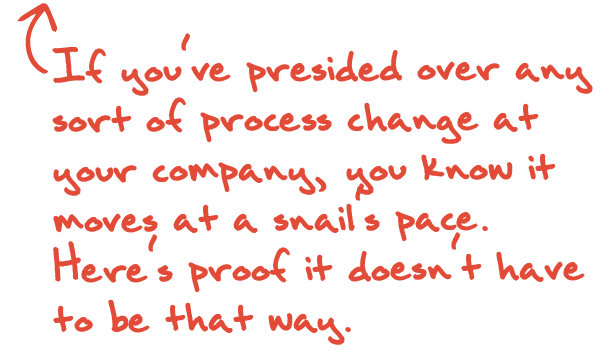
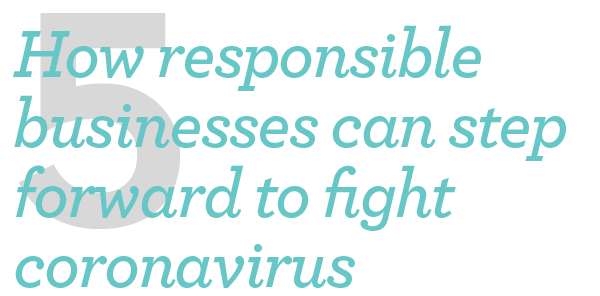
There’s a reason the White House has asked Walmart and others to help with drive-thru testing and Downing Street wants manufacturers to shift production lines to building ventilators. Governments, central banks, and the WHO will not defeat this disease alone. Responsible capitalism, which seeks to move corporate culture beyond shareholder primacy, now faces its biggest test yet. Today’s CEOs are knee-deep in invidious choices as they attempt to absorb losses, steady cashflow, and balance the competing needs of their investors, customers, staff, and suppliers. There are no firm answers, just best judgments and countless unknowns over supply chains, volatile markets, and the impact of travel bans and social distancing. It will be impossible to keep everyone happy. Yet, perhaps, there is opportunity too. In recent years we have seen that employees and consumers increasingly reward businesses that use their powers for good. Companies which uphold clear values to advance a bigger societal mission regularly exhibit stronger financial performance. As companies respond to coronavirus, false virtuousness will be easy to spot. Business leaders who back moral statements with practical action will stand out. Nobel prize winner Wangari Maathai said that, in the course of history, there comes a time when humanity is called upon to shift to a new level of consciousness, to reach a higher moral ground. For C-suites everywhere, that time is now. World Economic Forum
